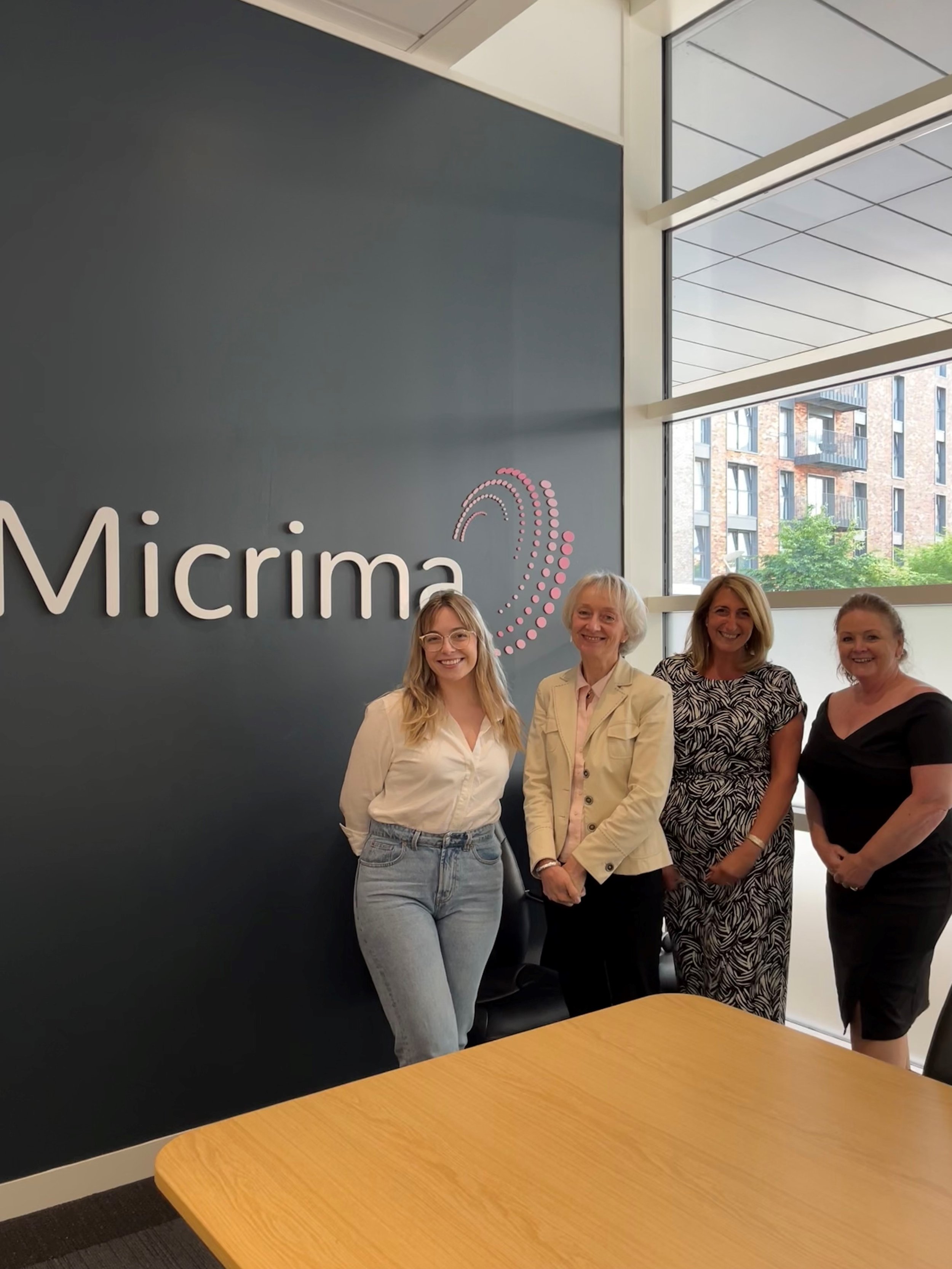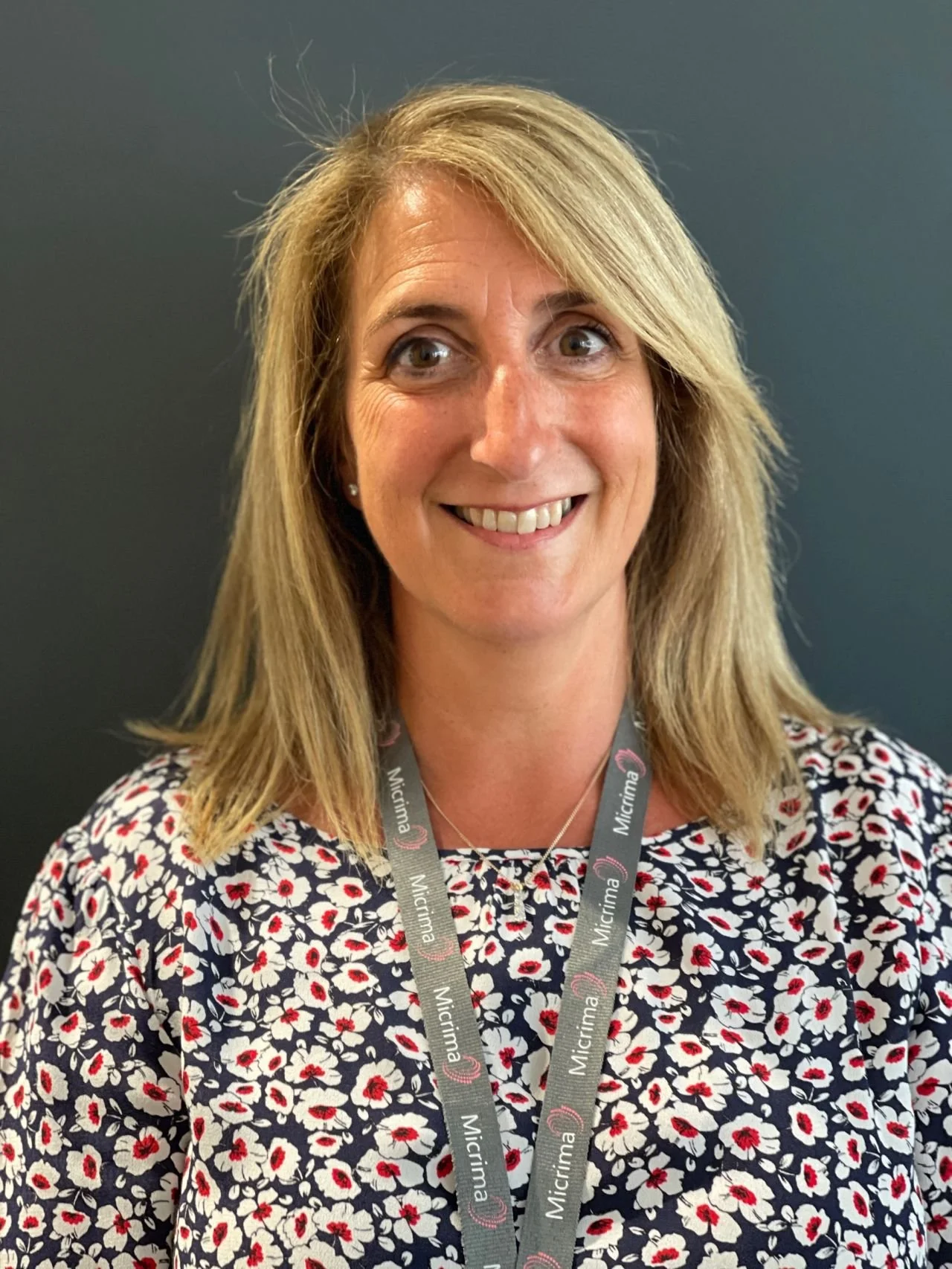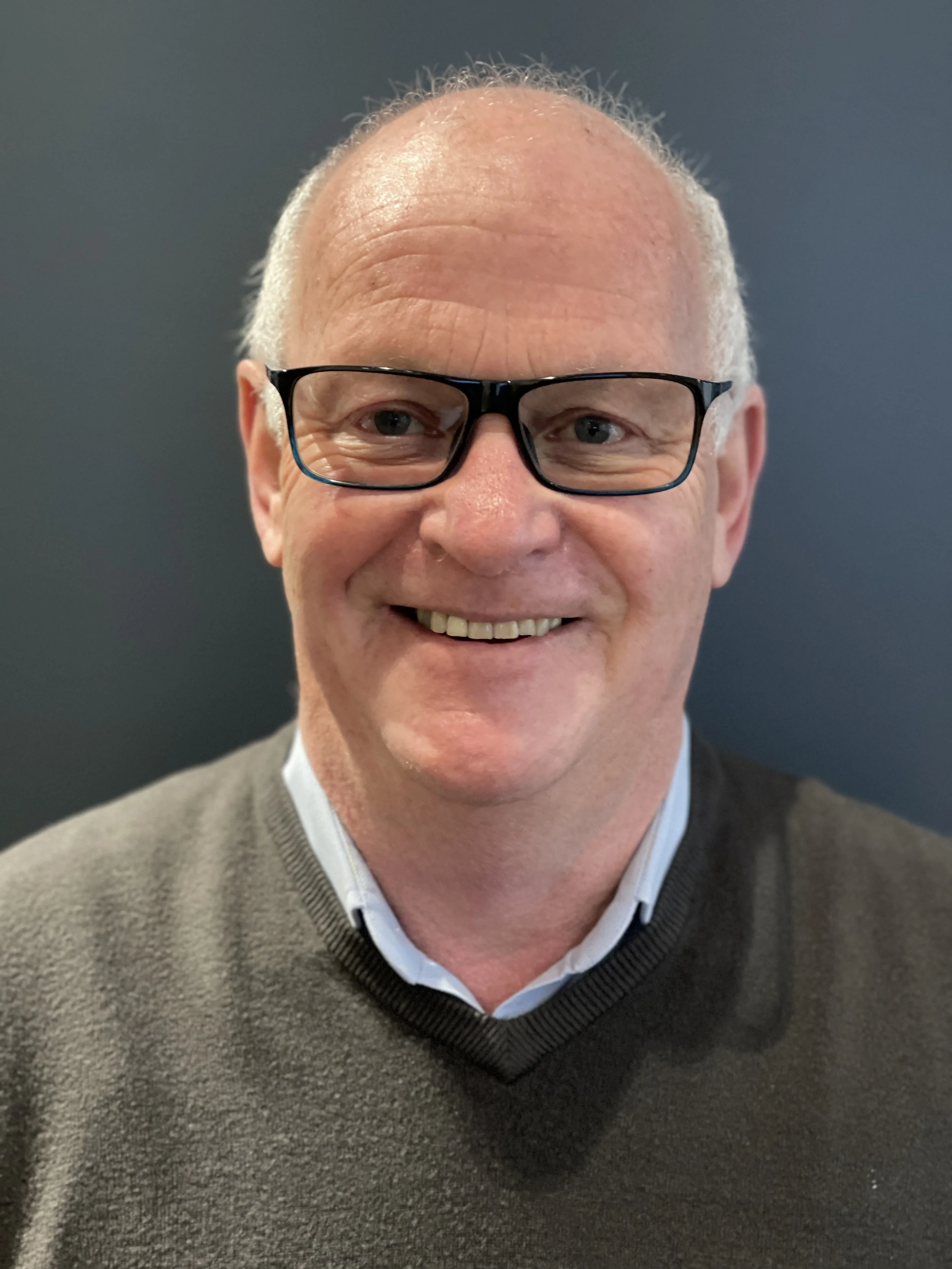
About Us
Micrima have developed a new and innovative radio wave based technology, for use in detection of breast cancer, initially pioneered at the University of Bristol in the UK.
Micrima are transforming the detection of breast cancer for all women, making a difference to the early diagnosis of breast cancer. Micrima are passionate about making available a range of non-ionising radio wave tools, that can help in detection and risk assessment of breast cancer.
Our devices are aimed at being comfortable for the user and can be used frequently, from a much younger age, in order to detect breast cancer earlier. The whole team at Micrima are passionate about detecting breast cancer earlier, to prevent as many deaths as possible.
Our Mission is to detect more instances of breast cancer, earlier
Meet some of the team
“I’m really encouraged by the progress being made. I think you’ve really understood the challenges and got clear thinking about where you need to go”
— Richard Sidebottom, Royal Marsden NHS Trust, Micrima Clinical Advisory Boardy and Clinical Investigator on Liesl trial
Our journey so far…
-

Starting at Bristol University
Originally based on technology developed for the detection of non-ferrous landmines, the early application to breast imaging was spun-out from the University of Bristol in 2005. The company founders, Roy Johnson, Professor Alan Preece and Professor Ian Craddock recognised the impact that such a technology could potentially have on breast cancer detection, resulting in the formation of the business now known as Micrima.
-

Building of different MARIA® generations
During 2013, the prototype MARIA® system was deployed in clinical trials at Frenchay and Southmead Hospitals in Bristol. The successful results from these early trials led to European regulatory approval, via the attainment of CE marking in 2015.
The M6 generation was built in 2016 and has since been in several trials for data collection, including the LIESL trial at the Royal Marsden.
-

Product Commercialisation
Between 2019 and 2020, the 7th generation MARIA® whole breast scanner was developed. The outcomes from development work and clinical trials led to further development of the product, with the new handheld and portable Mi~Scan tissue measurement device announced in February 2024. This device is expected to be available for order from October 2024, with first shipments in 2025.







